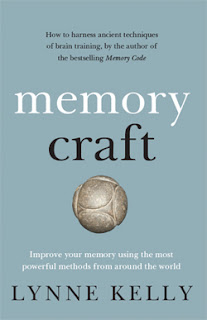Chinese Proverbs: 成語
I've been thinking about different culture's memory techniques, and I realised that Chines Proverbs are an excellent example of a Memory System.
Chinese Proverbs are either 成語 or 諺語, with my focus being on 成語. 諺語 are more like sayings, and are easier to understand without context. They also don't have as many rules. However, 成語 are ridiculously strange.
成語 have a few rules. Each one is 4 Characters long, and they are kooky. Some of them are simple, with two synonyms being mixed together. (Most Chinese Words are two Characters long, and will be so here unless specified. However, the intriguing ones are the story proverbs.
 |
| 自相矛盾 (zì xiāng máo dùn) |
The story behind 自相矛盾 (zì xiāng máo dùn) is that a merchant once was selling a pike and a shield. He claimed his Pike could pierce through any shield, and pierced it through a tree to prove it. Then, he claimed his shield could deflect any Pike, and showed the crowd how to use it. At that moment, an Old man asked what were to happen if the Pike and the Shield were to be used on each other.
The merchant couldn't respond.
Now, that's a complicated story, and a very roundabout way of remembering the meaning of a simple 4 word phrase. Despite this, ask anyone proficient in Chinese to use translate the phrase self-contradictory, and the proverb 自相矛盾 (zì xiāng máo dùn) will without doubt appear. In fact, they can probably recount the exact same story as I just did. This isn't a very high-level skill or anything, either! I learnt this and many others in Primary School! 杯弓蛇影 (bēi gōng shé yǐngs) is another good example of this, with the direct translation being Cup Bow Snake Shadow, an almost completely abstract group of characters that together somehow describe the effect of an imaginary threat affecting someone in reality, which is basically the Nocebo effect, a term only coined in english in 1961. If you ever have trouble describing this effect to someone in Chinese, you can probably just use the term 杯弓蛇影 bēi (gōng shé yǐng)and they'd probably get your meaning.
There are plenty more examples, like Drawing a Dragon and Dotting the Eyes(畫龍點睛) (huà lóng diǎn jīng) , Adding Legs to a Snake (畫蛇添足) (huà shé tiān zú) , Eating Gall and Lying on Firewood (臥薪嘗膽) (wò xīn cháng dǎn) , Stomp the Grass to Scare the Snake (打草驚蛇) (dǎ cǎo jīng shé), and more. I find these phrases like verbal keystones, but purely to add spiciness to Chinese Literature.
Which is the other thing. These phrases may have stories connected to them but the stories are not the purpose of the memorisation. All they do is make it easier to communicate concepts that don't have easy ways to be described or make yourself seem more educated. You'll almost always find these in literature, and especially in primary school essays. They are utilising memory techniques to basically create new words for the purpose of looking smarter than everyone else.
I really like Chinese.



I know a lawyer (from the Latin circle) who boasted that he could win any argument in Chinese because he had a vast knowledge of Chinese literature and a SingYu for any situation, and with exactly the most appropriate SingYu, you could shut anyone up and look like the smartest person in the room. Obviously winning conversation gives him a great amount of joy. I think he is also half-Portuguese and being able to defeat 'pure bloods' at their own game makes it even sweeter.
ReplyDeleteThere are apps with SingYu games but I can't get them on the Aus iTunes store. Frustrating.
For years I was confused by the little calligraphy booklets. I couldn't work our why the characters were so random. They didn't seem to be organised by simplicity or stroke order. And I certainly didn't imagine they made sense.